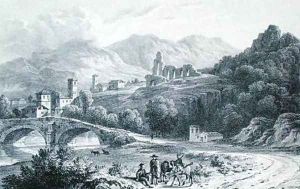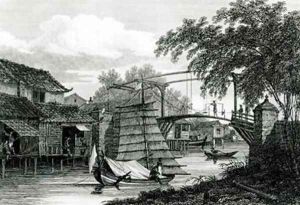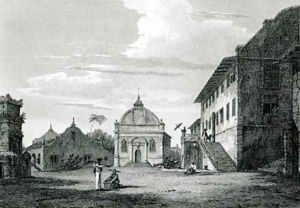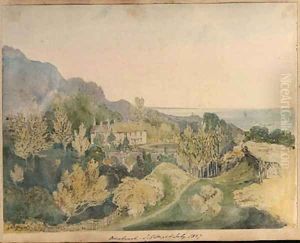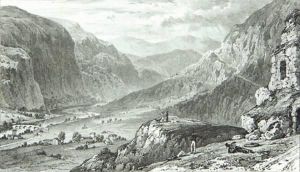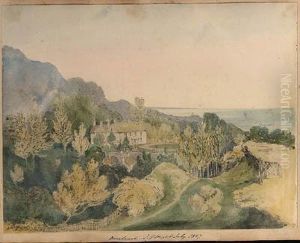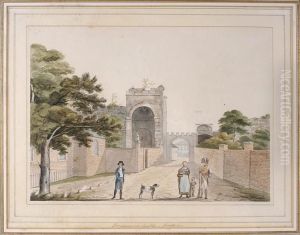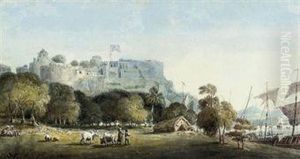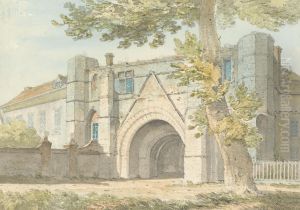Edward Hawke Locker Paintings
Edward Hawke Locker was an English watercolorist and civil servant, best known for his contributions to the arts and his role in the establishment of the National Gallery in London. Born on October 9, 1777, in Kent, England, he was the youngest son of Captain William Locker, a noted naval officer. Edward was named after Admiral Edward Hawke, a clear indication of his family's strong naval connections. Despite these connections, Edward pursued a career that was quite different from the maritime tradition of his family.
Educated at Eton College, Locker developed an early interest in art, which was encouraged by his father's friend, the celebrated artist Sir Joshua Reynolds. Under the tutelage of Reynolds and through his own endeavors, Locker honed his skills as a watercolorist. His artistic works, although not as widely known as those of his contemporaries, were admired for their delicate rendering and attention to detail.
Locker's contributions to the art world, however, extended beyond his own creations. In 1813, he became a founding member of the Royal Society of Literature. Additionally, he took on the role of Civil Commissioner at Greenwich Hospital, a position that allowed him to advocate for the arts within the institution, suggesting the creation of a gallery that would become the Greenwich Hospital Art Gallery.
One of his most significant achievements was his involvement in the founding of the National Gallery in London. He was a key figure in the discussions leading to the government's purchase of John Julius Angerstein's art collection, which formed the initial core of the Gallery's holdings. Locker's commitment to public access to the arts was a driving force in his support for the National Gallery, which opened its doors in 1824.
Beyond the arts, Locker was known for his literary contributions. He published a series of biographical sketches titled 'Memoirs of Celebrated Naval Commanders,' which were illustrated by engravings from original portraits. He also penned articles for the 'Quarterly Review' and other periodicals.
Edward Hawke Locker's life was a blend of public service and personal artistic endeavor. He passed away on June 24, 1849, leaving behind a legacy as a supporter and promoter of the arts in England. Although his paintings may not have garnered the same historical attention as those of his peers, his impact on the arts, particularly through his role in the establishment of the National Gallery, has been enduring.
